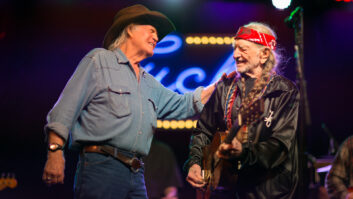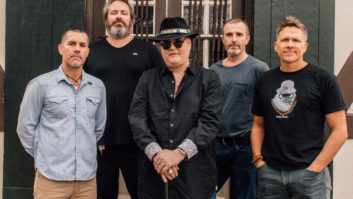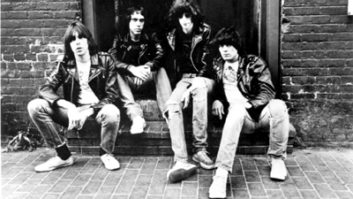
Tucked into a hilly Berkeley, Calif., neighborhood known more for its coffee shops and quaint Victorian houses than as a haven for recording artists, Whip Records’ studio is the culmination of owner/engineer David Landon’s life-long love of music and technology. Though completed in August 2001, Landon, a musician, producer and manager of various studios in the San Francisco Bay Area and abroad, worked toward his vision for many years before he ever laid the studio’s framework, gathering pieces of recording gear and even salvaging custom-made oak doors from San Francisco’s historic Russian Hill Recording Studios prior to designing his own recording space in the footprint of the large garage adjacent to his home.
Serious planning began in 1999. During a two-month period, Landon, architect Robert Remiker (whose credits include The Plant and Skywalker Sound, both in nearby Marin County) and acoustician Bob Skye (previously of San Francisco acoustic design firm Charles Salter & Associates) developed studio plans that included a live room (with iso space), a drum room, a second iso booth/tracking room and a large control room — all in 650 square feet. Cooperative neighbors, advice from studio owner friends and thorough planning allowed Landon to maximize his space. As he recounts, the “real challenge of designing the place was to figure out how to get those four spaces and still have good sight-lines, still have proper acoustics and still have a place to run the air conditioning.”
Designed and built from the ground up, the studio measures 35 by 27 feet, with 14-foot vaulted ceilings. Each room is isolated from the others, and a floating floor in the drum room prevents sub vibrations. In keeping with the feel of the old Russian Hill doors that frame the entryway, the studio boasts natural oak wainscotting and trim.
The comfortable, spacious control room in the L-shaped studio is home to a 56-input Mackie D8B and Pro Tools MIXPlus 5.1.3 system with ADAT bridge. Genelec 1030A and HHB Circle 5 monitors are powered by QSC power amps. Additional gear includes Avalon 737 and 747 preamp/compressor/EQs, UREI 1176 limiters, Lexicon reverbs and TC Electronic’s Finalizer Plus. As a studio built by a musician for musicians, Landon offers a number of high-quality instruments for his clients, including a 1976 Steinway Model L concert grand piano, a variety of Gibson and Fender guitars, even a Boss DR-660 drum machine. The studio’s mic closet is full of Neumann, B&K and AKG microphones.
The live room, which can accommodate up to seven musicians, was designed modularly so that the piano storage nook at the far end of the room, when empty, can become a semi-isolated space. The entryway at the near end also acts an iso booth, with gobos and mounted Fiberglas and pressboard acoustic treatments. The rooms are set up to offer clear lines of sight to the next, one of Landon’s design criteria.
A talented musician with two CDs out, Landon brings an artist-to-artist perspective to every project. “Even a lot of very accomplished artists don’t have extensive recording experience, so going to the studio can be intimidating for some,” he notes. As an independent artist and label owner, Landon knows a thing or two about recording budgets, so he has made every effort to keep his rates reasonable. “Someone can come to this studio and get three times the amount of time for the same amount of money than they would if they were in a bigger studio that would produce a comparable sound,” he claims.
Given the enormous pool of musicians in the area, it makes sense that Landon wants to strengthen the symbiotic relationship between Whip Records’ studio and label. The studio’s roster of clients includes jazz artists Jon Santos, Omar Sosa and Baba Tunde Lee, guitar virtuoso Alex Degrassi, gospel group Committed Ministry, and blues specialists Alvon Johnson and Michael Peloquin.
“Building a studio is very hard,” he says. “If I had known how hard it was, I don’t know that I would have had the courage to go through with it. I just love being in the studio. It’s like an artist going to a workshop to paint or to sculpt. I love the recording process where you can take a song and, as you overdub and experiment, the colors change and you’ve made something that was never there before.” www.whiprecords.com
Breean Lingle is Mix’s assistant editor.
Whip Recods owner/engineer David Landon (pictured) designed his studio for ensemble groups and solo artists.





